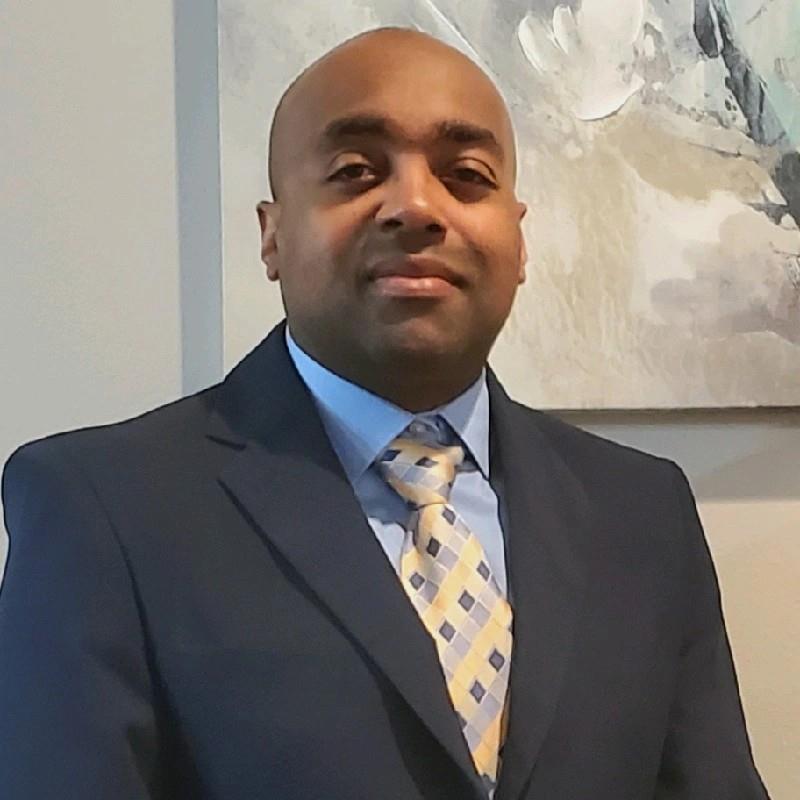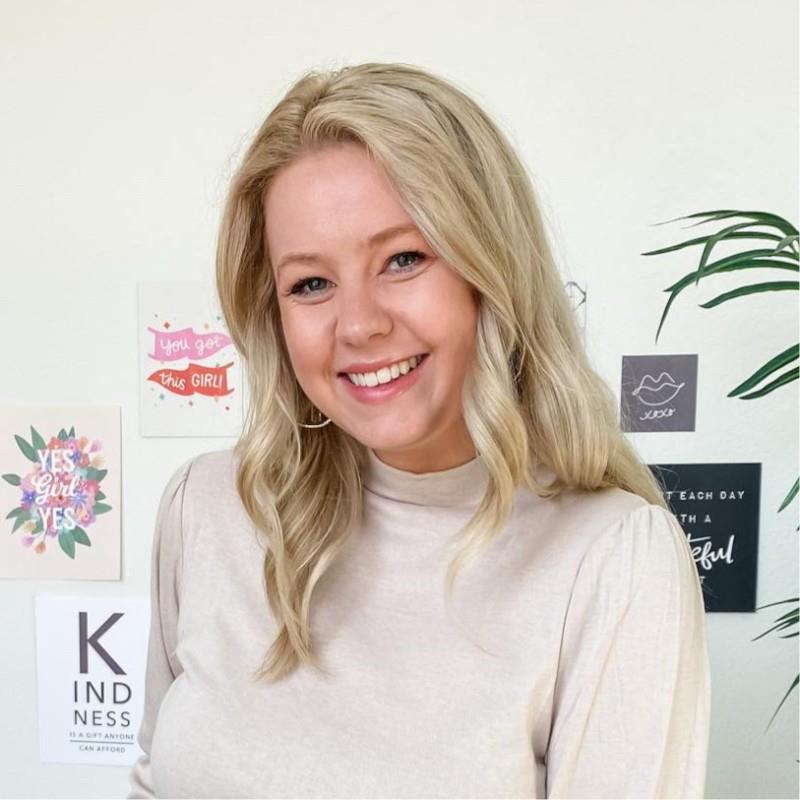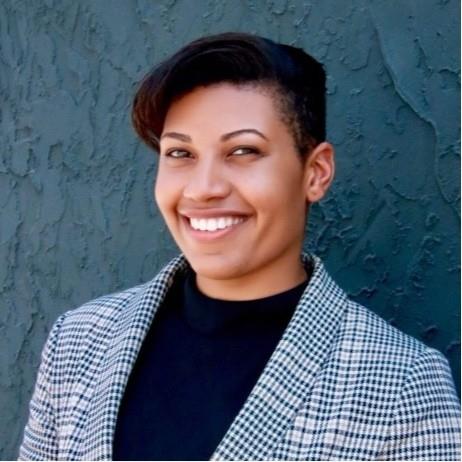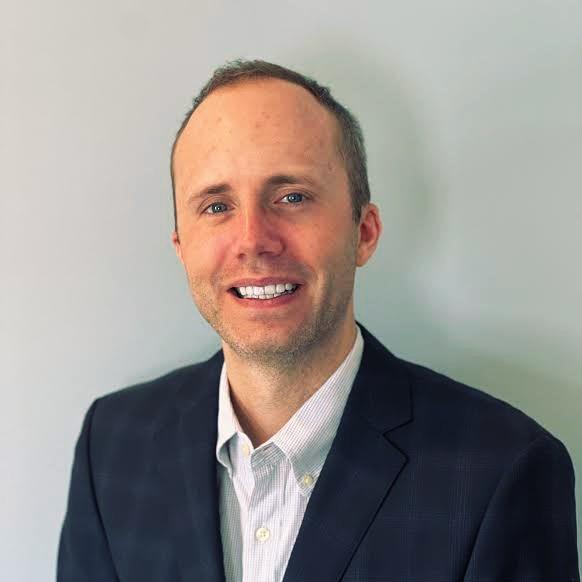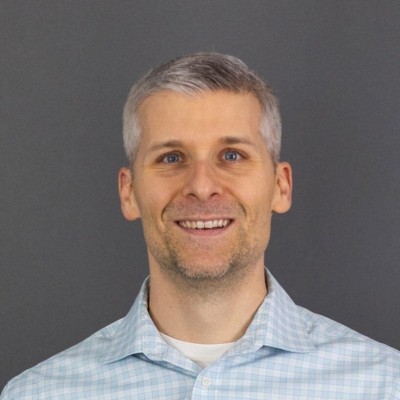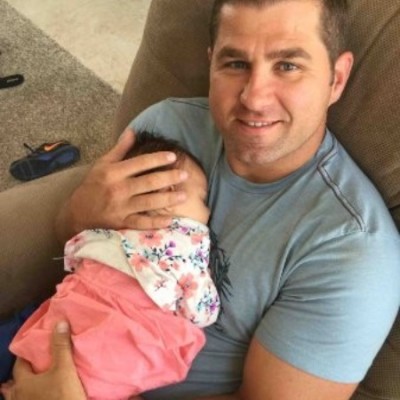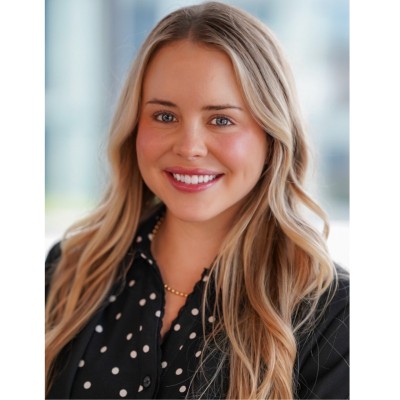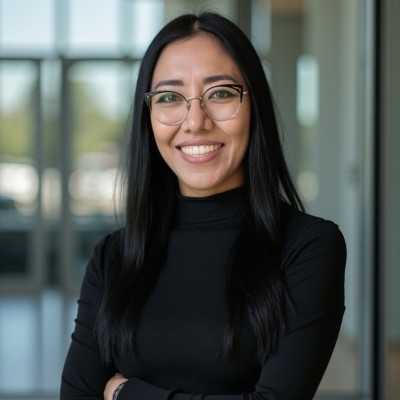
Do you have different eyes in your healthcare panel looking at the same information and coming up with the best answer? From the onset, you need to start with the end in mind and be a more diverse medical company. Samuel Gbadebo’s guest today is Andrie Leday, the Regional Vice President of Medtronic. Andrie explains why diversity and inclusion is a hot topic that needs to be discussed. Especially after the death of George Floyd. When you have a panel comprising people from different walks of life, your organization will have a richer representation and outlook. These factors are critical in the healthcare industry to address disparities. Want to know more about creating a diverse company? You’ve come to the right place. Tune in!
—
Watch the episode here
Listen to the podcast here
DEI In Medical Device: The Exponential Benefit Of A Diverse Medical Company With Andrie Leday
This is going to be part two with Andrie Leday. We had part one and this is the continuation of that interview. This is an important interview. Not only does Andrie talk about his space in robotics, but he also talks about words of wisdom for sales reps, sales leaders and people that want to get into the industry. We also tackle some important issues.
We literally talk about the murder of George Floyd, the DEI space, and the things he’s been doing as a pioneer in the industry within his company. leading the way and making sure that people who are performing, that opportunities are there, and for them to jump into those opportunities and truly succeed in underrepresented communities.
It’s a great episode. It’s an episode that I believe everyone should read. Andrie is a straight-laced guy. He gives it to you straight. He tells you exactly how it is. You’ll even catch that when you see my discussion with him in the interview. It’s refreshing and I appreciate it. As always, thank you for reading. I do hope you enjoy this interview.
—
You went from Marketing Development to Area Vice-President. You were making things happen very fast. You went into a Director of Robotic Therapies. One thing I want to put out there right now is there is a subset of people that don’t understand robotics at all. Can you clean that up in a general sense of what robotics actually is?
There’s a difference between robotics and a robot. In the robotics space, it’s an automated system, which is a tool or resource for a human to use to substitute a movement that would otherwise be done by the human. Within the surgical robotics space, our system, in particular, the Mazor X Stealth Edition, is used by surgeons to give them strategic guidance to the proper or optimal position for a surgical plan.
There’s a preplan that the surgeon does. It’s loaded into the navigation of our robot that then allows the robot to put itself in the right angle and the right position. For the surgeon, it gives them peace of mind that where they’re putting their pedicle screws or hardware is exactly where they planned to do it initially. There’s an evolution as these systems gain more trust and data. The goal for any and most of these systems is to see them move from more robotic to more robot, which a robot is more self-driven through AI and other initiatives. It becomes more proficient at delivering some of those outcomes.
We’ll get into this, but I’m sure you’ve seen the evolution of evolutions. From when you started up to now, I’m sure you’ve seen a lot. Th e segue I was talking about is you’re now at a higher level of leadership. When you talked about being an African-American, rising the ranks and limited opportunities, how did that play into your managing style and your interviewing style? Talk to us a little bit about how that played into your leadership.
One thing is it became imperative for me to look at as not just a diversity leader for African-Americans, but also being very agnostic in my view of making sure that I am shepherding diversity and innovation for diversity throughout the organization. I made sure I got myself involved in the Medtronic Women’s Network, Asians in Medtronic organization, and all of these different opportunities so that I can better understand the potential challenges, but also the talents within different unique affinity workspaces within Medtronic so that I can be a better servant of that.
[bctt tweet=”Start with the end in mind and be more diverse from the onset. ” username=””]
That doesn’t take a back burner to my commitment to the African Descent Network and African Descent Community within Medtronic, but it rides in a strong parallel as a leader. That’s what I’m called upon to do. Understanding that we had a drastic under-representation of Asians in our sales organization and customer-facing roles in Medtronic helps me to be more alert for looking for said talent. When I see it, how do I support it? How do I even help it move forward for women who are in an opportunity? How do I make sure that I’m supporting in a crowded room of men like myself, their voices and their contribution so we get the best out of our leadership group?
In the past years, diversity and inclusion have become hotter topics than ever. It’s exploded ever since the George Floyd incident and has become the frontline for many different corporations, including healthcare. When you say that you’ve always been thinking this way very early on, back in 2010, when you were Director of Robotic Therapy, how did your initiatives and wanting to drive leadership forward with making more opportunities for minorities influence the company? Would you say that Medtronic went in that direction and has always been a part of what we’re seeing now or not so much?
I will absolutely give a ton of credit to Dr. Sally Saba, who has joined our organization from the Legacy Group in California under Bernard Tyson and the team. When Sally joined our team, she put a big mirror in front of us to work with other groups to help come in and speak to our leadership. Some of the things we were doing well were the fact that we were supporting the resources and talk points from Alicia Brown that we wanted to see these things happen, especially start from the base level and be organic as they grew in our company.
What we weren’t doing is necessarily owning that action from the top down. That’s one of the things that I saw as an opportunity with the robotic opportunity, not just myself but also Carlton Weatherby, who was the VP at the time, over our surgical synergy group and robotics. We both said, “This is a new space. This is a new experience. Why does it necessarily need to be predestined to look the same way as the rest of our businesses? Why can’t we start with the end in mind and be more diverse from the onset and build this thing the right way?
I’m proud to say that organization was probably one of the most diverse and most highly regarded groups within Medtronic before it morphed into the rest of the organization through reorgs. I know when I left my district manager role and joined diabetes at the time, my team was more than 58% diverse from zero. I was the diversity when I came. We grew from 7 to 16 members with over 56% diversity, whether it be veterans, women, Blacks and Hispanics.
We were diverse across the board. That’s one of the things that I try to make sure that I inspect what I expect. As my people leaders are putting together a candidate slate, do we even have a diverse slate to consider? Are the people interviewing that candidate within the panel? Are they also have different walks of life and different experiences such that we’ve got different eyes looking at the same information and coming up with the best answer?
Do you agree that it’s even become more of a frontline issue in the last few years?

The murder of George Floyd absolutely opened the eyes for not just the day-to-day life in America but Corporate America life. I had several senior and executive leaders who thoughtfully called me and asked me how am I doing, how am I taking all of this, and what am I thinking. While I appreciate everyone for calling and expressing concern for me, I used it as a call to action. What are you going to do differently? I need you to behave differently. I’m going to continue to behave this way.
This is sadly something captured on camera, but this is the feelings and the energy that led to those officers treating Mr. Floyd that way inhumanely until he snapped out his life. Maybe not to that degree, but that energy of not seeing someone as the same, it’s still pervasive throughout Corporate America. What are you going to do now? I’m going to ask you that the next time I see you. I know you’re asking how I’m doing? I’m going to ask you what you’re doing.
Those were some of the conversations we’ve had. Through that, I’ve had a chance to lead Medtronic’s global initiative on being an inclusive leader in that series and even brought in outside groups to help facilitate that training. It’s now part of our conversation in BMA. We’re sourcing through amazing groups like National Sales Network. They work hand-in-hand with the African-American and diversity groups across the US for sales. I know my region alone has had a chance to hire two candidates. Doing more of those things and making them purposeful is what we’re seeing.
You are making things happen out there, Andrie.
I’m in the right place to be able to do those things. Medtronic is a special place and I appreciate it.
I want to get into different levels of leadership. You were a Director of Robotic Therapies and then you became the Vice-President in the Texas, Oklahoma region. Talk to us a little bit about what that transition was like? What are the stark differences there?
In robotic therapies, I didn’t have direct reports. I worked specifically with one of the largest IDMs in America and their executive leadership team to help bring about more programmatic success. One of the things I did was to challenge them on things they were doing to support these. They wasted millions of dollars on robots, but how is there no pool through on the other side. We have no measure of what good looks like. I’m like, “What goal are we aiming for?” There was no agreement on that. I used that experience when I came into this role within Texas to say, “What does good look like? Are we all in agreement that this is the market share we should strive for? We should be taking steps there. This is not good enough, even though someone is telling us that they’re giving us all they’ve got. If that’s all they’ve got, what else do we need to go and get to subsidize what we’ve already got?
[bctt tweet=”When it comes to work-life balance, it’s essential to be mindful of the difference between the quantity versus the quality of time. ” username=””]
That type of opportunity and eyes wide open approach helped me in the success that we saw within the space I was in by supporting it. Even at a strategic level, it has a 38% increase in utilization for that particular group of their robotics. They were happy and that helped me have some receipts and credibility when I came into this space, which also is a very large robotic market. Those folks now on the robotic team report up to my organization as well.
When it comes to getting into this space, give us two things you advise to anyone thinking, “I want to be in that role. I want to do something like this.” What would you advise them to do going into the interviewing process?
I would say the first thing is you’ve got to separate yourself before it even begins. If you’re going to write to me or any other leaders in some of these spaces that have an opportunity within their teams, it’s very unimpactful to come in and say, “I’d love to talk about opportunities at your company.” I hear that one a lot. Given the fact that my most valuable currency is time, I’m looking for the person who instead of that says, “I’d like to talk to you, Mr. Leday, about robotics. I couldn’t help but notice that you guys had the most recent advent of your release of the Midas Mazor drill system. I’d like to understand how that’s impacting your business. What do you see for the future?” You looked up something simple on the internet to make your requests more impactful.
Those are the simple things that I think can help get you an audience. I had this conversation prior to this with someone else in our career development. In interviews and interactions, oftentimes, we spent probably 80% to 90% of the interview talking about what we’ve done in the past. Your resume did that in large part. You may add context to it in the interviews, but that should only be roughly 40%. For the other 50%, I’d love for you to share with me what you’re going to do with this role. With the limited information you’ve received, I want to know what you’re going to do with this role. What are your plans? What are you excited about?
In the last ten minutes are your educated questions through your knowledge and exploration for knowledge that remains open that you want to ask. It shows that you have a comprehension of the challenge at hand, but you’re also thinking ahead in what you’re going to provide. That’s the 100% mark that I would say. Don’t spend too much time in the past because it makes it hard for them to look forward to you in the future. You have to separate yourself.
What I want to know from you, Andrie, is how do you feel about the services that are provided to help professionals that want to get into the industry?
First of all, I think it’s always very compelling when I see someone invest in themselves, to better themselves as a potential candidate, and see that they’re very self-aware of what they’re lacking and seek out the resolution. Opportunities to possibly be a part of a medical sales career builder program and work with Evolve Your Success and programs like yours are high value-added. That’s something that helps to separate candidates who may come in and also have limited experience, but what are they doing to bridge that gap? Programs like yours and others are big value-added.
Let’s talk about the person that’s a new sales professional. You’re an associate sales rep. You want to blow it out of the water. Another two things, what would you advise them to do?
Do the simple things and humble yourself. I used to tell people all the time, whether it’s carrying a pail of water or moving a tray, you want to be visible but you don’t want to be a nuisance. It’s appropriate to stand in a room and sometimes not say a word, but be ready for a question that comes your way. That’s oftentimes in neurosurgery or a ventriculostomy. It’s in a very difficult space. It could be a 6 or 8-hour procedure. You may not say a word but you need to be ready to say something if need be.

Be a part of the solutions for those you work with, whether it be the OR staff. They used to ask me about surgical instruments I didn’t sell, but I’d go find out who sell them. I find a contact number for them. I’d do the warm handoff to make sure that request was taken care of for my customer and make sure they followed up. The value that I could provide is taking something off their plate for my fellow spine members in Colorado.
If I saw Surgeon X who was their surgeon working at another hospital with another rep, I’m telling them what case it was that I saw Dr. so-and-so over there. Do they need me to find out any other information while I’m there? I would always make sure I’m a part of that team in whatever capacity. Oftentimes, they tell me, “He or she does that. They do those procedures,” or “Thanks for following up. I’ll go to their office tomorrow and make sure that we show them X, Y and Z products, which is the product they were using.”
From a leadership perspective, for those new to leadership, a new manager, or maybe a new director, what are two things that you would advise that they definitely take heed and do?
The first thing is I’ll recommend a reading. It’s called The Leadership Pipeline. It’s an excellent book that identifies for you the different behaviors at different levels of leadership. Sometimes in our mind, we think, “I’ll do the same thing I did at the level before and be effective because it worked for me before.” There are some things that as we move up to move into different roles, we need to let go of and delegate that more instead of handling that personally. That way, we can be more available for other strategic things that we’re called upon to do to be more effective leaders, especially in shepherding all of this new cultural change that we’re trying to achieve. That’s number one. I recommend that reading.
Number two, where possible, I always tell people to find their opportunities for greatness with their high posts and direct reports. At my level, if somebody brings something to me, sometimes I’m not able to do anything about the challenge before them. I can try to assume their feelings. If there is something that pops up and you have an opportunity to act and deliver this very unusually positive result for them that they didn’t expect to happen, that’s an opportunity for greatness. That gives you an opportunity as a leader to show up differently in your mind.
Whether that be labs on Saturday mornings at times, and that’s time away from your family, but you’re there at 7:30 in the morning right alongside them to greet surgeons, make that personal exchange, and thank them for their commitment and sacrifice away from their families. It could be a $1 million deal with the military that we may need to beg, borrow and steal from other regions to fulfill it. If that gets fulfilled and it drives the success with a key government customer that we’re having that conversation on their behalf and delivering that result for them, those are things that can show people that we care. When the time comes for them to run through a wall for you, they’ll do it.
Let’s switch gears a little bit here. Four kids. You have quite a personal life. One thing that we talk about when it comes to having a position in medical sales is how to get that work-life balance. Pharma has its demands too but it’s much more pronounced in medical device sales, especially in an OR role like trauma or something like neurosurgery, where you have to be available and ready. You were doing an extremely demanding role and making it happen with all these little ones to manage. Talk to us about what are some pros someone can take away from that who wants to develop a family, or is thinking about maybe changing fields? They think they can’t. What would you say to any of that?
It’s funny. My wife, Brandi, has been my partner in crime for such a long time. Communication has to be high. There are times when you get so busy and you’re so tired at the end of the day, you want to shut down. I would caution folks from doing that. You want to be measured in the number of downloads you give. You don’t want to take work home completely, but you want to share certain things so that people understand why you’re sacrificing and what you’re doing.
[bctt tweet=”Creating an environment of equality and diversity is necessary for healthcare. ” username=””]
When I was in the midst of the associate role and the pay cut, my wife was like, “I didn’t expect this. This is the worst one.” As soon as the commission side kicked in and allowed me to earn a commission, we tripled what I made as a DM. She was good there but I will say as far as the work-life balance, it’s important to understand the quality of time versus quantity of time at times and be very mindful of that.
With each of my four kids, my wife is great about the things that are critical that are coming up in their life. She will help coordinate and put that in my calendar. It’s not something I’m going to forget. If I’m coming home and hot off the plane, I’ll jump in the shower. Before COVID, I’ve always been a germophobe. She’ll have the clothes ready for me to jump into, to hit fast forward and get back into family life. She’s great about that and making sure that I’m still connected to the kids and opportunities very deliberately. Date night, we still try to make those where we can squeeze those in.
I think that’s the recipe. Realizing that the achievements in my career are a reflection of her commitment as well as my commitment. That’s another leadership tip I’m going to give. Recognition is an unlimited supply of currency that we’ve often under-spend. I don’t understand at times where it’s easy to take a look-at-me thing. We think we have to do that at times for advancement in a very crowded space. Recognition is something that spreads thick and wide and always pays back. I share all of my success with her.
A few last things before we close it up. With your own routine, if you have one and I want to believe that you do so. Give us the routine. Is it at 5:00 AM, it’s the gym, then the morning devotional, and then the kids. What happens? Give us your routine. How do you get to the day? How do you make this all happen?
Sometimes that day takes me there first, but generally speaking, I try to be up no later than at least 6:00 or 6:15. My body is hardwired that way from all the flights and early flights and things that sometimes I’ll wake up at 5:45, but from 6:00 to 6:15, I roll out of bed and try to get a quick workout. I’m all loaded there because the day gets away from you. It’s a way for me to decompress. I’ll get a quick workout in and then usually, I’ll get my first cup of coffee for the day. I say first because sometimes it can be 2 or 3. I’ll sit down. I have a whiteboard. I’ll prioritize or look at my priorities from the previous day that I either didn’t get to or take precedent for the day.
I’ll start to chime out and work through those things to make sure I get some of those milestones done and get those deliverables done. I’ll sit down and dive into taking care of the fires that have come through for my team. You don’t start the day with those because they will consume you. I try to get some of those other priorities done first, take care of the fires, make a few phone calls, and usually Zooms come to me on that instance.
My administrator is great at keeping me in as short as possible but more effective of my time. From a weekly standpoint, one of the things that are most impactful for me is on Sunday afternoons, I typically do a lot of my journal reading. I’m reading about other technologies and industries, and I’m educating myself to be a little more well-rounded on the things that are going on in the world around me.
Whether it be new processes, procedures, competitors, you name it, I’m a student of all that. I have some very special tricks that I use to learn where my competitors are weak in coverage in certain areas, but I’m keeping that to myself. I’m all over it. I’m about that competition and action. That allows me to be more effective as a leader for my team by beating myself with knowledge and being a student of knowledge.
Is there any core philosophy or last words you’d like to share with our audience, Andrie?

I’m absolutely in love with the leadership opportunity that I’m in now. As I aspire to do more things in a more macro level with leadership, one of the things that I take to heart is this opportunity that I have as a leader to impact not just patients, but impact the lives exponentially the people that I hire or on my team that hire those people. Creating this environment of equality and diverse landscape is so necessary for healthcare as we challenge ourselves to address healthcare disparities at the microscopic level.
This is an opportunity for us to make that landscape a little more normal and a little less disruptive by making sure we make these decisions each and every day so that people, after a while, it’s not something new. It’s not something different. It’s the way it is. I take that charge very seriously. I look for those people with that hunger to do those things which can rise to the challenge and occasions. We have the thick skin to get through some of the days that are going to be tough and take a lot of pride in providing that opportunity.
I know the exponential impact it’s going to have for that diverse family, whether they be LGBTQ, Native American, a disabled veteran, and also Black, Hispanic, and Asian employees. I know the exponential difference that this job and opportunity can have because it’s had that for me. My life and my children’s lives will never be changed by this amazing honor that I’ve been bestowed. I look forward to the opportunities to pay all those back.
Andrie, it was a pleasure to get this time with you. I’m sure the audience feels exactly the same. Thank you so much. Keep doing your thing. Go out there and continue to be great and inspiring as you do. We look forward to catching up with you in the future and hearing more of the great things you’ve done.
I appreciate the honor of speaking with you and your audience. I wish you all continued success as well.
—
Andrie tells it as he sees it. We talked about some hard-hitting events in that episode from the George Floyd murder to leading the way and helping underrepresented communities get the positions they deserve in the largest companies in the world. Andrie is leading the charge at Medtronic. It’s wonderful to hear. We also got some words of wisdom. Whether you’re a sales rep trying to get into the industry or a sales leader, Andrie had something to share. For all of you that didn’t know, you learned a little bit more about what robotics means.
What I want to talk about now is I know that there are all kinds of people reading this episode. Some of you are thinking about getting into the industry. You’re thinking about medical device sales. You might’ve been thinking about pharmaceutical sales or some healthcare-related selling. You’re telling yourself, “How do I make this happen?” Maybe you’ve been trying to apply online and it hasn’t been happening.
Maybe you’ve been getting interviews but for whatever reason, you can’t get past the 1st or 2nd round. You’re beside yourself now. You’re saying, “What do I need to do to make this happen? How do I get into this role? I want you to visit EvolveYourSuccess.com. I want you to select Attain A Medical Sales Role, fill out our application and schedule some time with us. Let’s have a conversation. Whether it’s me or someone from our staff here at Evolve Your Success, we’re going to have a conversation with you about what you’re trying to do in your role, what you’re trying to do to transition to this industry, what’s stopping you, and some actual changes you can make that can get you in front of the opportunity. You might even have a bigger opportunity with our program that had so much success in getting people positions in medical sales, so let us help you.
If you’re a sales rep out there or sales leader and you’ve noticed that a lot is happening on social media, a lot of headway is being made on social media, people are selling on social media, people are branding themselves, are becoming thought leaders and creating opportunities that you didn’t even know existed. You’re asking, “How do I do this? I want to be a part of this. I want to get some different opportunities. I want to expose my brand. I want to be able to sell through social media.”
Go to EvolveYourSuccess.com and select Improve Sales Performance. You’re going to be able to schedule a call. We’re going to have a conversation about how we can transform your business and your brand, and truly give you some presence and headway, and demystify this whole thing around social media selling.
As always, I am appreciative of everyone. One more thing I want to add, I want you to think about what you’re doing in your life now. This applies to everyone, not just sales reps, sales leaders or people who want to get into the industry because everyone has to deal with finances. It’s in everyone’s life no matter what you’re doing.
There is a guest that we had, Chris Larsen. He began his career in medical device sales at 25, but his true path to financial freedom was through real estate investing. While spending days in the OR was lucrative for him, it also kept him away from being the best father and husband that he wanted to be. During his eighteen-year career, he created enough passive income that he was able to walk away from a $300,000 per year role to spend more time with his family. His goal is to help others achieve financial freedom as well. With that being said, I’m also talking about myself. I also work with Chris in this space with finances. He helps me.
If you’d like to learn his secrets and how you can become financially independent, you have to get a copy of his book at NextLevelIncome.com/book. Chris is the real deal. To be able to walk away from a $300,000 a year business and to do your own because he’s doing so well, helping so many people, and they see the value. People are coming from his own customer base that he had to his colleagues, to people like myself. Why wouldn’t you want to be a part of that?
What Chris is doing allows people to become truly financially independent. It’s definitely worth looking into. I’ve read his book 3 or 4 times. It’s such an easy read and valuable. You learn so much and everyone is on board. If you have money to invest, or you’re curious, and you’re thinking, “What do I get to do? How do I even tackle this real estate investing that I keep hearing about? This is the man you do it with. The book is at NextLevelIncome.com/book. As always, thank you and make sure you tune in for another episode.
Important Links:
- Medtronic
- Andrie Leday – LinkedIn
- Part One – Andrie Leday
- Mazor X Stealth Edition
- Dr. Sally Saba
- National Sales Network
- The Leadership Pipeline
- Attain Medical Sales Role
- Improve Sales Performance
- Sales Builder Program
- NextLevelIncome.com/book
About Andrie Leday
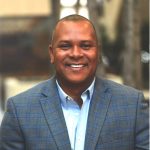 Andrie joined Medtronic in 2010 and has held several key leadership roles during his 11-year tenure.
Andrie joined Medtronic in 2010 and has held several key leadership roles during his 11-year tenure.
Andrie has over 20 years of successful sales and leadership experience in the healthcare industry. He has earned more than eight annual sales awards during his time with Medtronic, including most recently the 2017 President’s Club award for Medtronic Surgical Technologies. Andrie serves on Medtronic’s African Descent Network (ADN) Executive Leadership Board, and he is a Medtronic Women’s Network (MWN) Mentor.
Andrie has a Bachelor of Science in Marketing from Texas A&M University and a Master of Business Administration in Healthcare Management. He and his wife, Brandi, have four active children (Lainey-17, Keira-14, Mia-11, Trent 7). When away from work, Andrie enjoys spending time with his family, college football, travel, reading industry journals, and DIY projects.
Love the show? Subscribe, rate, review, and share!
